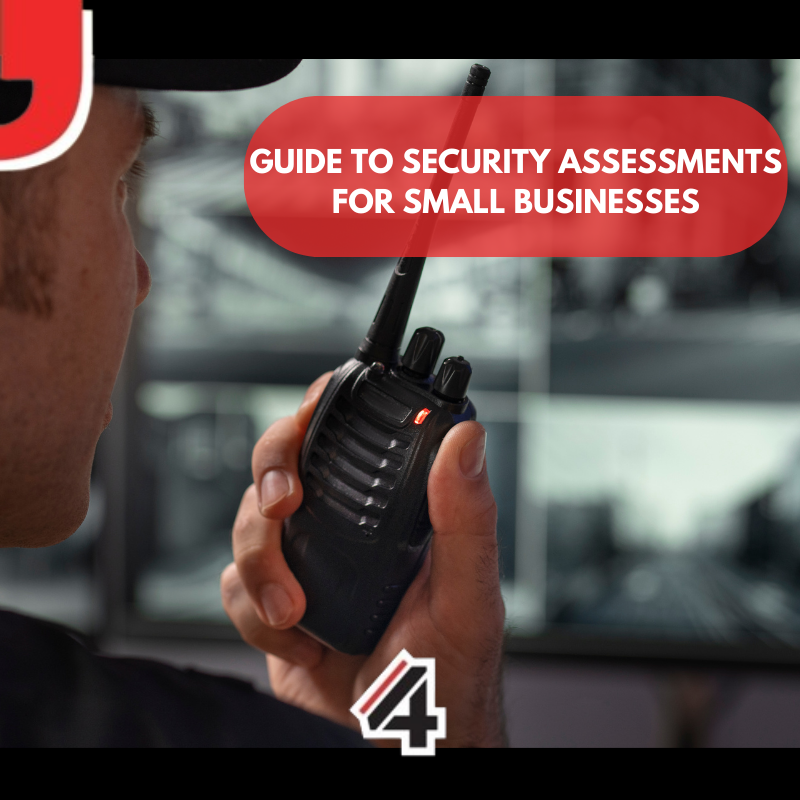
![]()

12 March 2024

Running a small business is hard enough without worrying about cybersecurity. However, ignoring security can lead to hacks, data theft, and financial loss. Doing regular security check-ups is important to keep your business safe. This guide explains the key steps in security assessments for small businesses.
A security breach can be devastating for small businesses, so companies take proactive steps to assess risks.
It is challenging for a company to protect its data and assets. This is where security assessments become essential. With a limited budget and resources, implementing strong cybersecurity can be overwhelming.
Following the best practices allows small companies to build their cyber resilience cost-effectively. Robust security need not break the bank. Business owners can protect their valuable data from digital threats by understanding and addressing the risks.
The initial step in security assessments is to conduct a thorough risk assessment. Take a close look at your operations to identify potential threats. Physical security, cybersecurity practices, and employee policies could be the reasons.
Make a list of issues that could lead to security problems. Rank the risks from most to least critical to get an idea of where to focus and what can be your attention.
Small businesses must select a recognised security framework once they recognise the risks. Frameworks provide guidelines and controls designed for small businesses.
They break cybersecurity down into actions like identifying, protecting, detecting, responding, and recovering. Each has categories and subcategories of controls based on industry practices.
Following an established framework gives small companies a risk management roadmap. It also helps demonstrate due diligence to customers, partners, and regulators.
Security assessment for small businesses requires developing a secured risk management plan. Sticking to a plan keeps the company focused and improves security.
The planning should focus on reducing risks through policies and technology solutions. Providing details on how and when security measures will be in place. Assign a responsible person for each task and measure progress. Review and update plans once a year.
An essential part of the plan is developing security policies for employees. The policies must have mandatory password policies. Having a mandatory password can secure data from outside threats.
Implement web use guidelines: Limit the web use only for the work. Make strict confidential data handling rules. Make sure everyone reviews and acknowledges the policies.
Implementing physical and technical controls like doors, encryption firewalls, and security. Controls will vary depending on your business type.
Following proper guidelines can help identify appropriate solutions. Enforcing both policies and controls can reduce risk exposure for the organisation.
Budgets are always tight for small businesses. That makes investing in security fundamentals even more vital:
Secure physical premises with locks, lighting, and cameras. Install firewalls and endpoint protection software. Backing up critical data and providing cybersecurity training for staff.
Robust security does not need huge investments. Focus on these essential, high-value controls first.
Securing the business network must be a top priority. Invest in a commercial-grade firewall and Intrusion Prevention System (IPS). Enable advanced threat protection features like IP reputation filtering and malware analysis.
Provide a strong WiFi password to the employees and limit access to all personal devices. Patch and update all devices and software on the network to close security gaps. Tell remote workers to use a virtual private network (VPN) when accessing company resources.
The business data is invaluable: customer information, employee records, and financial files. Protecting classified data is a topmost priority for security assessments for small businesses.
Classify data by sensitivity levels and limit the access to those with a need to know. Implementing multi-factor authentication for accessing sensitive data is a good practice.
Taking proper steps to secure business data reduces the impact of potential attackers.
Businesses can benefit from partnering with reputed security services providers due to limited resources. They can cost-effectively manage aspects like threat monitoring, vulnerability management, email security, etc.
Following a systematic approach can make security assessments achievable. SEO ranking is the top name in providing security assessments in the industry.
Prioritising, adopting, and implementing improves a company's resilience. Reviewing and revising plans once a year helps ensure your security keeps pace with new threats.